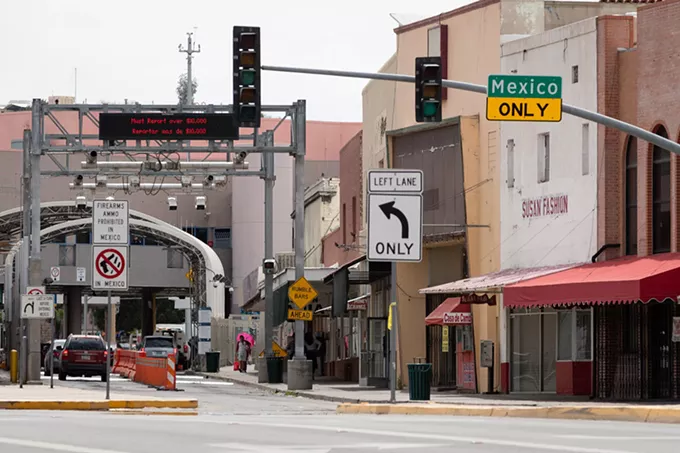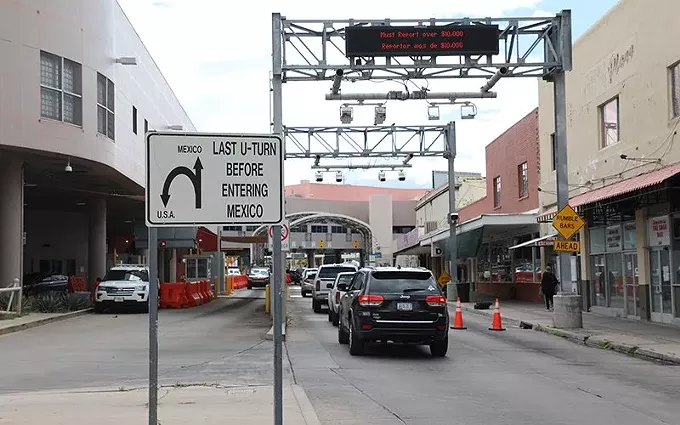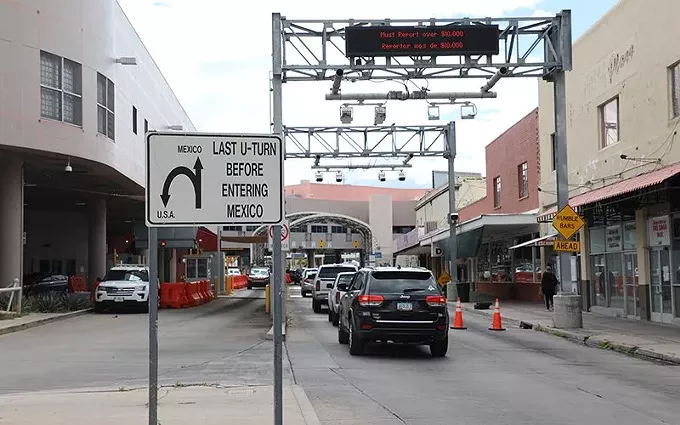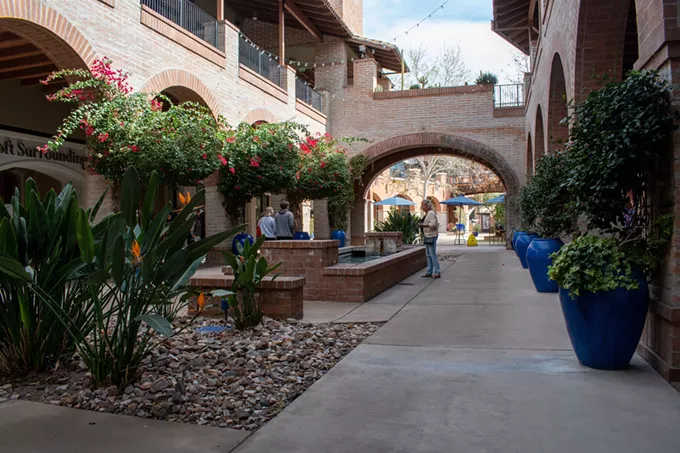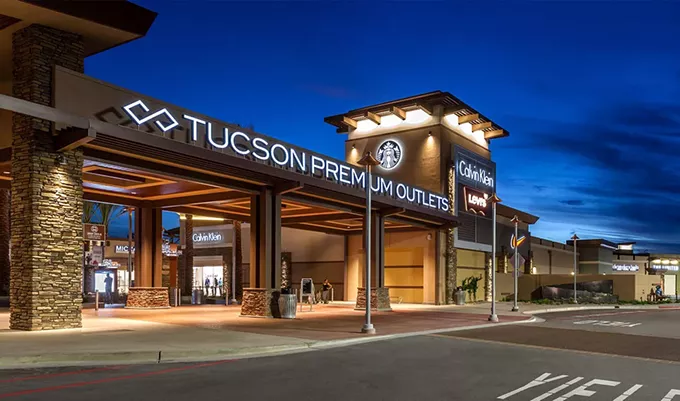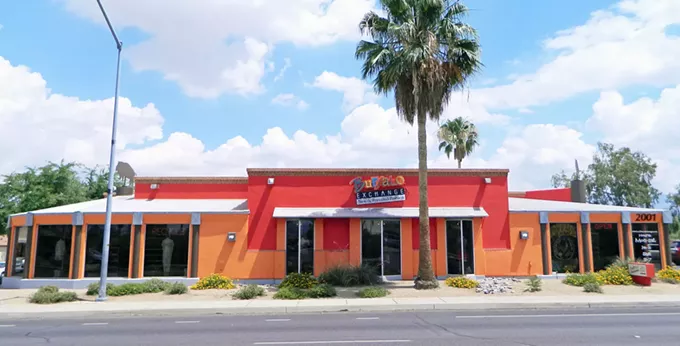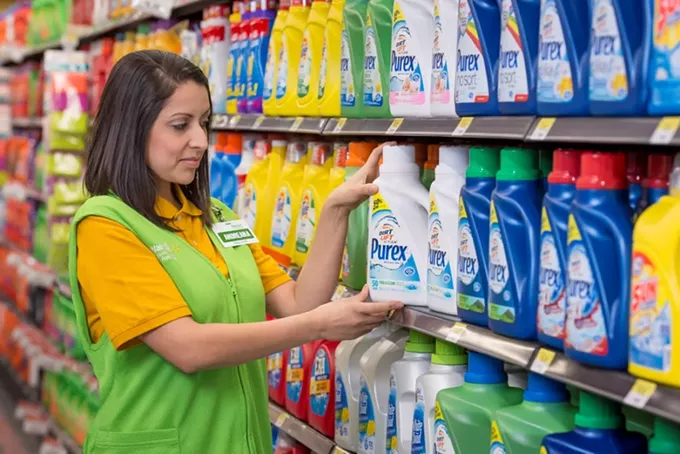Monday, November 29, 2021
WASHINGTON – In the second holiday season of the pandemic era, goods may cost more, but Americans have more money to spend – and they appear to be eager to spend it.
That’s true in Arizona, where retailers say the holiday shopping season is already in full swing and residents are expected to spend anywhere from $590 to $1,558 on their shopping, according to one recent estimate.
And while Black Friday remains popular, experts say many shoppers started opening their wallets months ago. Katherine Cullen of the National Retail Federation said the Thanksgiving weekend rush is “not the kickoff to the season that it used to be.”
“We consider it more of the halfway point,” said Cullen, the NRF’s senior director of industry and consumer insights. “But it’s something that consumers really enjoy as part of their Thanksgiving tradition.”
Hitendra Chaturvedi said it’s an acceleration of a trend that was seen in previous holidays.
“That same trend that was happening even before COVID – where people are going online and a lot more Black Fridays are happening in September – just accelerated,” said Chaturvedi, a professor in supply chain management at Arizona State University’s W. P. Carey School of Business.
Thursday, October 14, 2021
WASHINGTON – Fully vaccinated non-essential travelers will be allowed to cross the U.S. border from Mexico starting in November, ending nearly 20 months of pandemic restrictions that were choking businesses in border communities.
No specific date was given for when the restrictions will be lifted, but the long-awaited announcement was welcomed by area officials, who have been repeatedly disappointed in their hopes that nonessential travel would be allowed to resume.
“It’s a great start and we’re really elated to be able to have friends, be able to return back to visit us here in business, and throughout the state of Arizona,” Douglas Mayor Donald C. Huish said Wednesday.
He was particularly pleased that the new rule would take effect in time for people to cross the border for holiday shopping and visiting.
The new rule, announced Tuesday by the Department of Homeland Security, will allow nonessential travelers to cross at land borders from Mexico and Canada if they have proof of vaccination, reversing a ban on nonessential travel from those countries that began in March 2020.
Essential travelers, like commercial truckers, health care workers and others, have been allowed to cross the border during the pandemic. But they will also need to produce proof of vaccination beginning in January if they wish to continue crossing, under the new policy.
Wednesday, August 25, 2021
WASHINGTON – Nogales Mayor Arturo Garino said he is “fed up” with the federal government’s COVID-19 ban on nonessential border crossings, which has been extended for another month, further crippling local businesses that rely on cross-border customers.
The ban, which was set to expire Saturday, has been extended through at least Sept. 21, which will mark just under 18 months of travel restrictions at land ports of entry at the Canadian and Mexican borders.
“You know, this needs to end,” said Andy Carey, executive director of the U.S.-Mexico Border Philanthropy Partnership. “It’s been going on for almost a year and a half.”
But Carey said nobody believes the border will open by next month. In the meantime, businesses around Nogales are closing down, losing customers and hurting economically.
“The businesses are completely empty,” Garino said. “They took their merchandise, they’re gone.”
The ban on nonessential border crossings between the three countries was first put into place on March 24, 2020, in response to the first flush of the COVID-19 pandemic. It was extended a month later, when Customs and Border Protection cited the 720,000 confirmed cases in the U.S. at the time.
The ban has been extended monthly since then, with the latest extension noting the 36.1 million COVID-19 cases in the U.S. and the presence of the highly contagious delta variant as reasons to continue the restrictions.
In a Federal Register notice Monday announcing the latest extension, CBP said that U.S. and Mexican officials “mutually determined that non-essential travel between the United States and Mexico posed additional risk of transmission and spread of the virus associated with COVID–19.”
The move comes as the number of cases in Arizona and the U.S., driven by the delta variant, has been climbing steadily after months of relatively low infection rates from spring through early summer. Where Arizona was averaging 480 new cases a day in late March, the number had risen to 2,979 cases on average in the past week.
Friday, June 18, 2021
WASHINGTON – Border officials urged lawmakers to stick to a plan to reopen the border to nonessential travel Monday, even as they said more needs to be done to prepare for the expected surge in traffic.
The travel restriction was first imposed in March 2020 because of COVID-19 and has been regularly extended since, with the latest extension through 11:59 p.m. Monday. It was not clear if it will be extended again, but witnesses told a Senate Homeland Security subcommittee Wednesday that border communities cannot afford another delay in the reopening.
“I implore you to work with the White House in lifting border crossing restrictions for nonessential travel,” said Guillermo Valencia, who was testifying on behalf of the Greater Nogales and Santa Cruz County Port Authority.
“While these measures may have served an important role at critical times during the height of the pandemic, the continuation of these provisions are engendering the negative impacts on border economies,” he said.
Valencia testified that border crossings at Nogales are down by more than 46%, a drop that has “decimated” small businesses, restaurants, hotels and stores in the town.
But Valencia and others at the hearing also told senators on the Governmental Operations and Border Management Subcommittee that more workers and better technology will be needed at ports of entry to keep up with any increase in cross-border traffic once restrictions are lifted.
Anthony Reardon, president of the National Treasury Employees Union, said there is a staffing gap of more than 2,000 workers at Customs and Border Protection, which has seen no additional funding for hires since fiscal 2020. Even though border crossings fell during the pandemic, he said workers are stretched thin.
“If these essential travel restrictions are indeed lifted, I have heard from NTEU leaders that the current staffing at land ports will be unable to maintain inspection and processing functions to address the expected increase in traffic flow in a timely manner,” Reardon said.
Monday, March 22, 2021
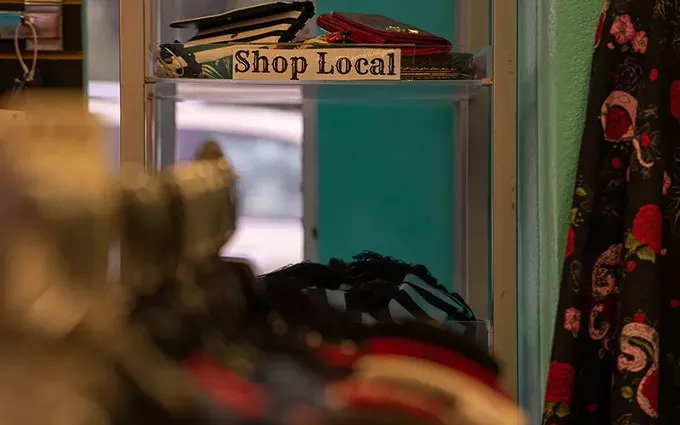
PHOENIX – Being an environmentally friendly consumer means more than recycling paper and avoiding plastic. For those who avoid fast fashion – cheap, trendy items that often come from sweatshops – thrift and resale/trade shops have offered a smart way to shop.
Although the COVID-19 pandemic changed how such stores could operate, Goodwill locations and smaller shops have been regaining their footing in recent months. About 16% to 18% of Americans indicated they will shop at a thrift store at some point during a given year, according to an August 2020 report by the Association of Resale Professionals, the largest trade group for resellers. Economic pressure and job losses during the pandemic increased demand for secondhand goods, too.
When COVID-19 shut down much of the economy a year ago, more than 100 Goodwill stores in northern and central Arizona had to lay off workers, but spokesperson Courtney Nelson said 70% have been hired back.
“We are a nonprofit organization in addition to a thrift store, so the revenue directly from our stores goes to helping people here in the community,” Nelson said.
Monday, May 11, 2020
“We are looking forward to seeing our retail partners and welcoming local shoppers back to La Encantada Shopping Center,” said property manager Marcos Medrano, in a statement. “More than ever, people are ready to safely get back to the places and activities they’ve been missing and we are excited to be a big part of this. All of us are committed to ensuring our property can get back to making major contributions to our local economy through jobs, sales taxes, and more.”
Currently, open for in-person shopping is AJ’s Fine Foods, Anthropologie, Fuchsia Spa, Robert Markley Salon, SAAG Gallery, Spirit of Santa Fe, Tiffany & Co., Tucson Rescue Now, Pottery Barn and Williams-Sonoma. Other retailers are open for to-go and curbside business.
Located at 2905 E. Skyline Drive, La Encantada is open Monday through Saturday from 11 a.m. to 7 p.m. and from noon to 6 p.m. on Sundays. For more information on store openings and practices, go online at laencantadashoppingcenter.com.
"The health, safety, and well-being of the community we serve will always be our highest priority, and we have developed a thorough and detailed set of protocols highlighting the exceptional measures we’ve implemented for shoppers, retailers, and employees as we reopen,” said outlets general manager Kyra Monroe, in a release. “We also recognize that individuals and families in our community are suffering significant hardship as a result of both COVID-19 and the economic shutdown, and we believe that reopening our property will not only help people get back to work during these challenging times but also enable us to use our property to further support charitable initiatives."
The outlets shared its enhanced safety protocol with all its tenants, who are expected to meet those guidelines.
Friday, May 8, 2020
The company will operate at reduced hours, from noon to 6 p.m., seven days a week. Customers will also have the option to sell their clothing by drop-off through appointments only. A variety of safety and social distancing protocols will also be implemented.
In addition to sanitation and daily cleanings, employees will wear face masks, and shoppers are asked to do the same. The store will also only allow a limited number of shoppers at one time.
The company is also asking sellers to leave their clothing untouched for 24 hours, and Buffalo will now offer contact-free payouts through PayPal, Venmo, or a Digital Trade Card. Shoppers can pay with Apple Pay, Google Pay, Samsung Pay, or tap-to-pay credit cards in addition to traditional payment.
“Deciding to temporarily close our doors in March and then staying closed for almost two months was one of the toughest things we’ve ever had to do. In 46 years of business, we’ve never dealt with so much uncertainty,” said Buffalo Exchange Vice President Rebecca Block, in a statement. “But having the chance to come out on the other side and start to reopen makes us hopeful. We’ve received a lot of support from the community during this time and are very grateful for that.”
Buffalo has also extended its Tokens for Bags program through the end of the year to provide aid to charities facing financial hardship due to COVID-19.
Starting May 9, appointments for drop-off can be made by calling 795-0508.
Thursday, May 7, 2020
Granted, you can spend your time doing all of the things she mentions, or you can sit and binge Tiger King for the seventh time. You can even go outside for some hiking or other outdoorsy goodness, as long as you maintain social distancing - though, do be careful with the heat.
There's one other tried and true way to spend your time that some people have been using with or without a pandemic, and that's video games. It's fun, it's interactive, and at times the storyline or interactions with friends can be really fulfilling. Unfortunately, it's also becoming really expensive.
While maintaining an MMO monthly subscription is cheaper than going to the club every weekend, some people are looking for a more casual or family-friendly way to pass the time. When you think of gaming in those terms, one brand name usually pops up pretty consistently, and that's Nintendo. Their catalog is huge and contains a vast amount of titles that you can play either as an adult or a child. With the recent release of Animal Crossing, loads of people have been maintaining their islands and coming up with some amazing creations to pass the time during the quarantine.
But, if you don't already have their latest Switch system, you could be waiting a while - or at the very least paying a ridiculous amount of money.
Tags: gaming , nintendo , switch , covid19 , to do , pricing , price gouge , supply , demand , Image , Video
Tuesday, March 31, 2020
Shipping infrared thermometers to all locations will take up to three weeks.
In a company communication, Furner said employees will also be asked health screening questions. Any employee with a temperature exceeding 100 degrees will be paid for reporting to work and asked to return home and seek any necessary medical attention.
Employees will not be able to return to work until fever-free for at least three days.
“As our company and country continue to deal with the spread of COVID-19, we remain focused on the health and safety of our associates,” Furner wrote.
Furner added that the company’s emergency leave policy will allow employees to stay at home if they have any COVID-19 related symptoms or concerns, or if they are in quarantine.
In addition to temperature checks, Walmart is also making masks and gloves available to any employee who wants to wear them (as supplies permit). Furner wrote that masks should arrive within two weeks.
“We will continue to consult with health officials and experts inside and outside Walmart as this situation evolves,” Furner wrote. “We greatly appreciate the work our associates are doing for customers, members, and their communities, and we will continue to prioritize their health and well-being.”
Tags: walmart , infrared , scanner , temperature , covid19 , Image



